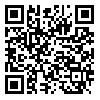Volume 13, Issue 3 (May & Jun 2022)
BCN 2022, 13(3): 275-284 |
Back to browse issues page
Download citation:
BibTeX | RIS | EndNote | Medlars | ProCite | Reference Manager | RefWorks
Send citation to:



BibTeX | RIS | EndNote | Medlars | ProCite | Reference Manager | RefWorks
Send citation to:
Mohammadi M, Haeri Rohani A, Yaghmaei P, Sahraei H. Prenatal Stress-induced Spatial Memory Deficit in a Sex-specific Manner in Mice: A Possible Involvement of Hippocampal Insulin Resistance. BCN 2022; 13 (3) :275-284
URL: http://bcn.iums.ac.ir/article-1-1599-en.html
URL: http://bcn.iums.ac.ir/article-1-1599-en.html
1- Department of Biology, Faculty of Basic Sciences, Science and Research Branch, Azad Islamic University, Tehran, Iran.
2- Neuroscience Research Center, Baqiyatallah University of Medical Sciences, Tehran, Iran.
2- Neuroscience Research Center, Baqiyatallah University of Medical Sciences, Tehran, Iran.
Abstract:
Introduction: In the present study, the effects of prenatal stress on spatial learning and memory deficit and its relationship with hippocampal insulin resistance were examined in male and female offspring.
Methods: Female NMRI mice were mated with males overnight, and the 0-day of pregnancy was detected (Gestational day 0-GD0). The pregnant mice were then randomly divided into stress and control groups. The stress group received stress from the GD0 to GD10. On post natal day 30 (PND30), the offspring were divided into 4 subgroups, namely: male-control, female-control, male-stress, and female-stress. Barnes maze method was used for spatial learning evaluation. Plasma cortisol and insulin levels were measured at the beginning of the experiments. At the end of the experiments, the animals’ brains were removed, and their hippocampus was extracted. The hippocampus was homogenized, and its insulin and insulin-receptor contents were evaluated.
Results: The stressed animals needed more time for reaching to target hole. In addition, they spend more distance to find the target hole, which was more pronounced in the male offspring. Both plasma and hippocampal insulin content were reduced in the stressed groups. Moreover, the hippocampal insulin receptors protein was reduced in the stressed animals. There was a positive relationship between plasma and hippocampal content and memory deficit in the stressed groups.
Conclusion: These results indicated that prenatal stress could induce spatial learning and memory deficit in offspring, which is associated with plasma and hippocampal insulin and receptor content reduction (hippocampal insulin resistance) in these animals.
Methods: Female NMRI mice were mated with males overnight, and the 0-day of pregnancy was detected (Gestational day 0-GD0). The pregnant mice were then randomly divided into stress and control groups. The stress group received stress from the GD0 to GD10. On post natal day 30 (PND30), the offspring were divided into 4 subgroups, namely: male-control, female-control, male-stress, and female-stress. Barnes maze method was used for spatial learning evaluation. Plasma cortisol and insulin levels were measured at the beginning of the experiments. At the end of the experiments, the animals’ brains were removed, and their hippocampus was extracted. The hippocampus was homogenized, and its insulin and insulin-receptor contents were evaluated.
Results: The stressed animals needed more time for reaching to target hole. In addition, they spend more distance to find the target hole, which was more pronounced in the male offspring. Both plasma and hippocampal insulin content were reduced in the stressed groups. Moreover, the hippocampal insulin receptors protein was reduced in the stressed animals. There was a positive relationship between plasma and hippocampal content and memory deficit in the stressed groups.
Conclusion: These results indicated that prenatal stress could induce spatial learning and memory deficit in offspring, which is associated with plasma and hippocampal insulin and receptor content reduction (hippocampal insulin resistance) in these animals.
Keywords: Barnes maze, Hippocampal insulin, Plasma insulin, Prenatal stress, Spatial learning, and memory
Type of Study: Original |
Subject:
Behavioral Neuroscience
Received: 2019/09/14 | Accepted: 2020/11/29 | Published: 2022/05/1
Received: 2019/09/14 | Accepted: 2020/11/29 | Published: 2022/05/1
Send email to the article author
| Rights and permissions | |
 |
This work is licensed under a Creative Commons Attribution-NonCommercial 4.0 International License. |








